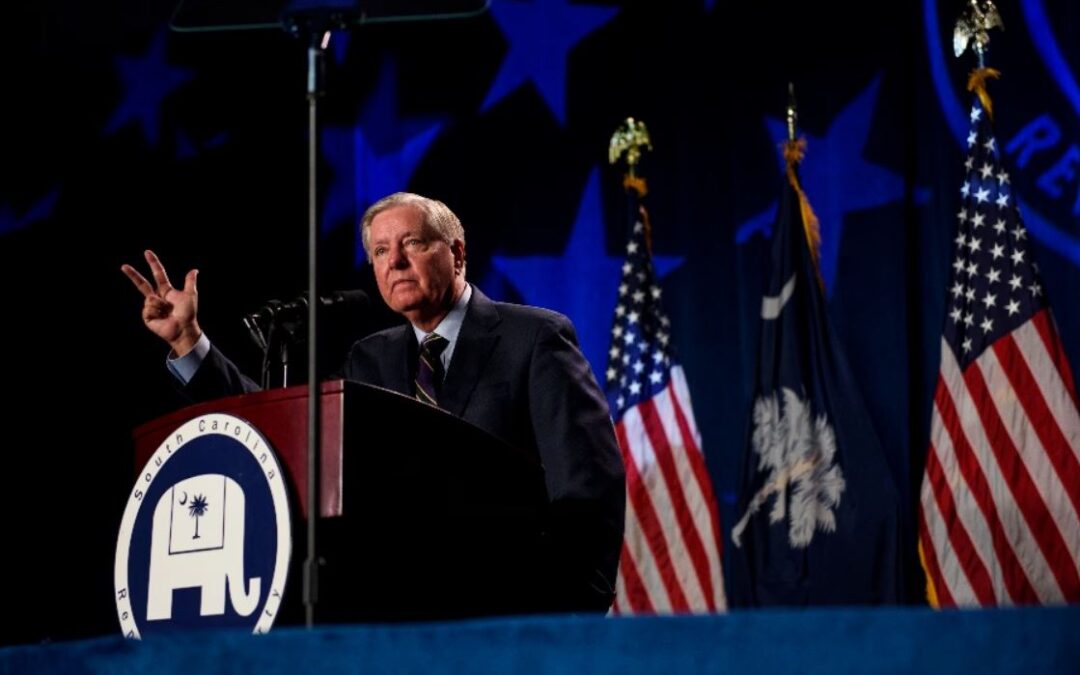When it comes to getting former President Donald Trump, there are no rules.
Democrats have been willing to do whatever it takes to achieve their goals. And when it comes to investigations of Democratic political figures, the scale always seems to be tipped in their favor.
This has taken a toll on conservatives’ view of the Rule of Law in America.
The liberal media has no idea how much conservatives distrust the Justice Department and the FBI for their conduct over the last several years.
The entire country was told that the Steele dossier was reliable, and the Hunter Biden laptop was Russian disinformation. The exact opposite proved to be true.
So-called intelligence leaders vouched that the laptop was fake, and the highest officials in the FBI and DOJ continuously used the Steele dossier to obtain warrants against American citizens, when they should have known better.
The most recent example is special counsel Jack Smith’s indictment of President Trump for allegedly conspiring to deny voters their constitutional right to cast a ballot, and for allegedly conspiring to prevent the orderly transfer of power.
Mr. Smith’s indictment is problematic for several reasons.
The first obvious problem is the former president of the United States, a Republican, is scheduled to be tried in the overwhelmingly Democratic District of Columbia. Notably, this is a jurisdiction where President Trump garnered less than 5% of the vote in both the 2016 and 2020 presidential elections.
Like every other American, President Trump has a Sixth Amendment constitutional right to have his case heard by an impartial jury. This is simply not possible in a venue where he is overwhelmingly hated and routinely vilified.
If there was ever a case involving a political figure that deserves a transfer of venue, it is this one.
The Supreme Court has held that transfers of venue are warranted “if extraordinary local prejudice will prevent a fair trial” (Skilling v. United States).
In Delaney v. United States, the First Circuit held that a change in venue was necessary under the Sixth Amendment, where congressional hearings created a hostile atmosphere that prejudiced the defendant.
In my opinion, President Trump’s case meets the standards in both of these instances.
If this trial proceeds unchanged, it also sets a troubling precedent for any Republican or Democrat officeholders who may be indicted in the future.
It will incentivize prosecutors to bring flimsy cases in hostile jurisdictions in order to achieve a legal verdict with a sympathetic, politically motivated, and like-minded jury pool.
The Smith indictment involves issues of deep political significance, and the prosecution’s shakeup of the American political and legal system needs to be handled in a manner that passes the smell test.
Put simply, allowing this case to proceed in Washington, D.C., does not meet this threshold, much less the Sixth Amendment.
Second, there are issues with Judge Tanya Chutkan’s presiding over the case. I do not contest her character or her professional abilities. I voted to confirm her to the federal bench.
However, Judge Chutkan — a Barack Obama appointee — has already been involved in sentencing January 6th defendants and, in doing so, has repeatedly demonstrated that she’s made up her mind on President Trump and the events of that day.
She has handed out harsher sentences than prosecutors requested. She has also suggested that the January 6th defendants “did not go to the United States Capitol out of any love for our country,” but instead “went for one man”: President Trump.
These comments suggest that Judge Chutkan has already declared President Trump responsible for the January 6th rioters’ conduct, even before he has walked into her courtroom. President Trump’s lawyers may even have grounds to argue that she should be “disqualified” under the recusal statute.
It is imperative that a new set of eyes handle this case.
Third, Mr. Smith’s indictment deprives President Trump of crucial defenses.
Not a single “co-conspirator” from President Trump’s inner circle, who challenged the election and discussed the legal theories in support of these challenges with the former president, has been indicted.
This puts President Trump in a terrible dilemma. The exact individuals he relied on to craft his legal challenges have the status of unindicted co-conspirators.
With this legal cloud hanging over their heads, critical witnesses for President Trump’s defense will effectively be unable to testify because they will be compelled to invoke their Fifth Amendment right against self-incrimination.
If Mr. Smith truly believes that President Trump’s inner circle included co-conspirators, he should have charged them. In deciding not to do so, it is obvious that the prosecution aims to take all major defense witnesses off the table and to flip those whom President Trump relied upon during the relevant time period.
This legal maneuvering will hamstring President Trump’s ability to defend himself, and in effect, it denies him due process.
Fourth, I think we can all agree that if you are going to charge a former president of the United States, you should be absolutely sure the case against them is airtight.
The current case does not meet that standard.
It is notable that the prosecution chose not to charge President Trump with inciting a riot. Instead, Mr. Smith charged President Trump with conspiring to defraud the United States.
To prevail on this charge, the prosecution must prove President Trump’s state of mind — that he knew his statements about election interference were false.
According to the indictment, President Trump was told that a number of the voter fraud allegations were false. However, even if the Pope himself told President Trump that he was wrong about the election, Mr. Smith’s case is weak, as the president genuinely believed otherwise.
After years of wrongful impeachments and the Crossfire Hurricane mess, the prosecutor cannot fairly ignore that President Trump had very legitimate reasons to believe the system had been rigged to his detriment from the moment he decided to run for office.
While I voted to certify the 2020 presidential election results from all states, many of my Republican colleagues in the House and the Senate objected to individual states’ results, as Democrats have done in the past.
As I have often said, I disagree with the legal theories being proposed by the Trump team.
However, disagreement on legal matters should not be criminalized, nor can the First Amendment be ignored, as it provides heightened protection for President Trump’s political speech during the relevant time period.
Instead of acknowledging this and moving on, the prosecutors brought an indictment that stretches the law.
Finally, the election of 1876 demonstrates why this prosecution is unprecedented, unwarranted, and unacceptable.
In a close contest between Rutherford B. Hayes and Samuel Tilden, there were claims of widespread voter fraud, including ballot tampering.
Three states — South Carolina, Louisiana, and Florida — sent competing sets of electors that called the results of the election into question. Furthermore, evidence later surfaced of attempted bribery to create these dueling sets of electors.
To resolve the controversy, Congress formed a commission that voted to award electoral votes from each of the disputed states to Hayes.
Through the work of the Electoral Commission and a compromise to remove troops from the South, Hayes was elected president, and federal troops were removed shortly thereafter.
Despite some states submitting alternate slates of electors, and despite even evidence of bribery, no one was criminally prosecuted for attempting to provide groundless submissions to Congress, attempting to “defraud the United States,” or for any other actions related to the election certification.
The political process served as its own indictment and Tilden was unable to return as the presidential nominee in 1880.
Like the 1876 election, an indictment here is entirely improper.
The American people will have the opportunity to decide when they cast their votes whether they believe President Trump acted in an improper fashion. They don’t need a politically motivated prosecution.
If this trial proceeds on its current course, the damage done to the Rule of Law in this country would be severe and, I fear, irreparable.
U.S. Sen. Lindsey Graham represents South Carolina. A Republican, he serves as ranking member of the Senate Judiciary Committee.
© 2023 Newsmax. All rights reserved.









